Treating TMJ with Acupuncture for Jaw Pain
Photo by Pavel Danilyuk from Pexels
I’ve been treating TMJ a lot lately which seems to manifest differently for different patients. Common symptoms of TMD/TMJ include:
Jaw pain or tenderness
Difficulty opening or closing the mouth
Clicking, popping, or grating sounds in the jaw
Headaches or migraines
Ear pain or pressure
Neck and shoulder pain
Temporomandibular Joint Disorder (TMD), often referred to as TMJ, is a condition affecting the temporomandibular joint, which connects the jaw to the skull. TMD can cause discomfort, pain, and restricted movement in the jaw, often accompanied by headaches, earaches, and difficulty chewing. While conventional treatments, such as medications, physical therapy, and dental appliances, are commonly used, acupuncture offers another alternative for managing the pain.
UNDERSTANDING TMD/TMJ
The temporomandibular joint (TMJ) is a hinge-like structure located on both sides of the face, connecting the lower jawbone (mandible) to the skull. It allows for smooth jaw movement when speaking, chewing, and yawning. TMD occurs when there is dysfunction in this joint or the surrounding muscles, ligaments, and tissues.
TMD can be caused by various factors, including stress, teeth grinding (bruxism), poor posture, arthritis, or injury to the jaw. Conventional treatments aim to relieve pain and improve jaw function, but they may not address the underlying causes or provide long-term relief. Acupuncture offers a complementary approach that targets both the symptoms and the potential causes of TMD.
HOW ACUPUNCTURE HELPS TREAT TMD/TMJ
Acupuncture works by stimulating specific acupoints on the body, which are believed to influence the flow of Qi through meridians, or energy pathways. For TMD, acupuncture focuses on motor points that regulate the muscles, nerves, and tissues surrounding the jaw, as well as those that address stress and tension in the body.
Here’s how acupuncture can help relieve TMD symptoms:
1. Pain Relief and Muscle Relaxation
Acupuncture is known for its analgesic (pain-relieving) properties. When needles are inserted into acupoints, the body releases natural painkillers, such as endorphins and serotonin. This helps reduce pain in the jaw, face, and head.
2. Electro-Acupuncture and Dry Needling techniques
Acupuncture can relax tight or overworked muscles, which are often responsible for jaw tension and discomfort. By using an electric stim to the needles, or even dry needling to neck muscles associated with the jaw, this eases muscle spasms and helps restore normal jaw movement.
3. Improving Nerve Function
TMD can involve nerve-related pain, especially if there is pressure on the trigeminal nerve, which is responsible for sensation in the face. Electro-acupuncture helps by regulating nerve function, reducing nerve sensitivity, and calming overactive pain signals. This can provide relief from sharp or shooting pains in the jaw and face, which are common in TMD.
4. Stress Reduction
Stress and anxiety are major contributors to TMD, often leading to jaw clenching, teeth grinding, and increased muscle tension. Acupuncture is effective in reducing stress by calming the nervous system and promoting relaxation. By stimulating points that regulate the body’s stress response, acupuncture lowers levels of stress hormones like cortisol, helping to prevent jaw tension from recurring.
CLINICAL EVIDENCE SUPPORTING ACUPUNCTURE FOR TMD
Numerous studies have demonstrated the effectiveness of acupuncture in relieving TMD symptoms. For example, a 2018 study published in The Journal of Orofacial Pain found that acupuncture significantly reduced pain and improved jaw function in patients with TMD. Participants who received acupuncture experienced greater pain relief compared to those who received traditional TMD treatments alone.
Another study published in Evidence-Based Complementary and Alternative Medicine showed that acupuncture improved pain thresholds and decreased the frequency of jaw clicking and muscle tenderness in patients with chronic TMD. These findings suggest that acupuncture can be an effective treatment for both acute and chronic TMD symptoms.
In addition, acupuncture has been shown to reduce the intensity and frequency of headaches and migraines, which are often associated with TMD. A study published in Headache: The Journal of Head and Face Pain found that acupuncture reduced the number of headache days in patients with chronic tension-type headaches, a common co-occurring condition with TMD.
WHAT TO EXPECT FROM AN ACUPUNCTURE TREATMENT FOR TMD
During a typical session, needles may be inserted into points on the face, jaw, neck, and sometimes arms or legs depending on the treatment plan. The needles are very thin, and most patients experience little to no discomfort. Many people find acupuncture relaxing, and some even fall asleep during the treatment. I always start with points away from the pain before needling the jaw directly. This “drains” the pain and inflammation and often don’t need to needle the face. I also include a lot of hands-on therapy for the jaw.
LIFESTYLE
Here are some additional things you can do to help:
Massage therapy to relax facial and jaw muscles.
Stress management techniques such as mindfulness or meditation to reduce emotional tension.
Reduce gum chewing and eating hard crunchy foods like nuts until it subsides
If you suffer from TMD and are looking for a non-invasive treatment option, acupuncture may be a valuable addition to your wellness plan. Be sure to consult with a licensed acupuncturist L.Ac. who can design a personalized treatment plan based on your specific needs and health goals.

